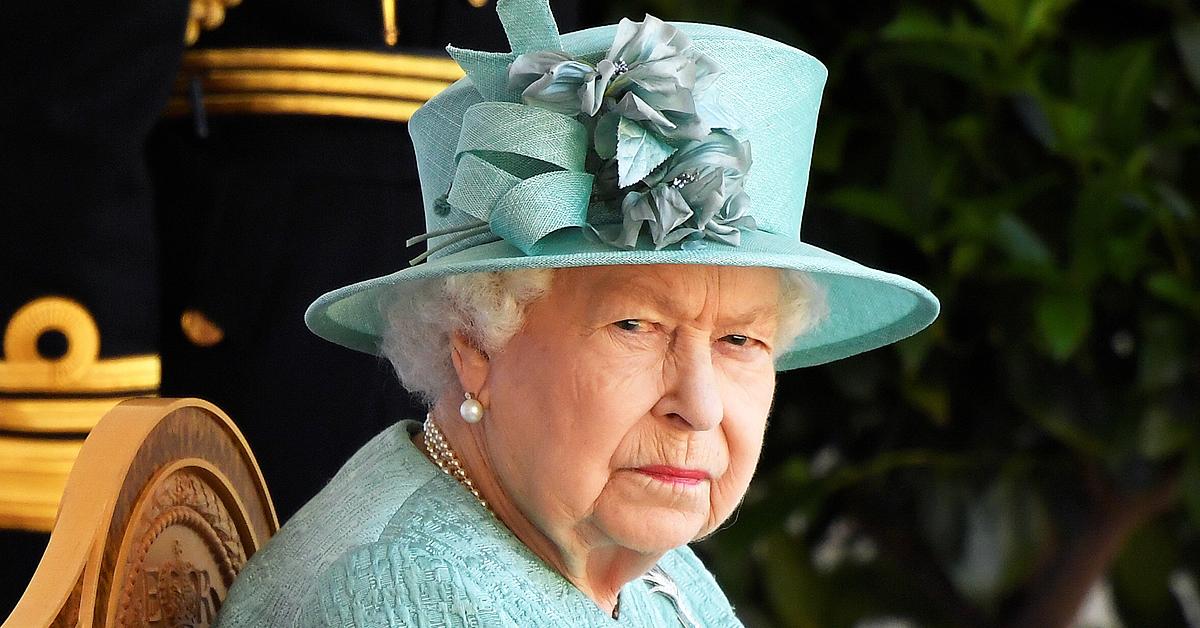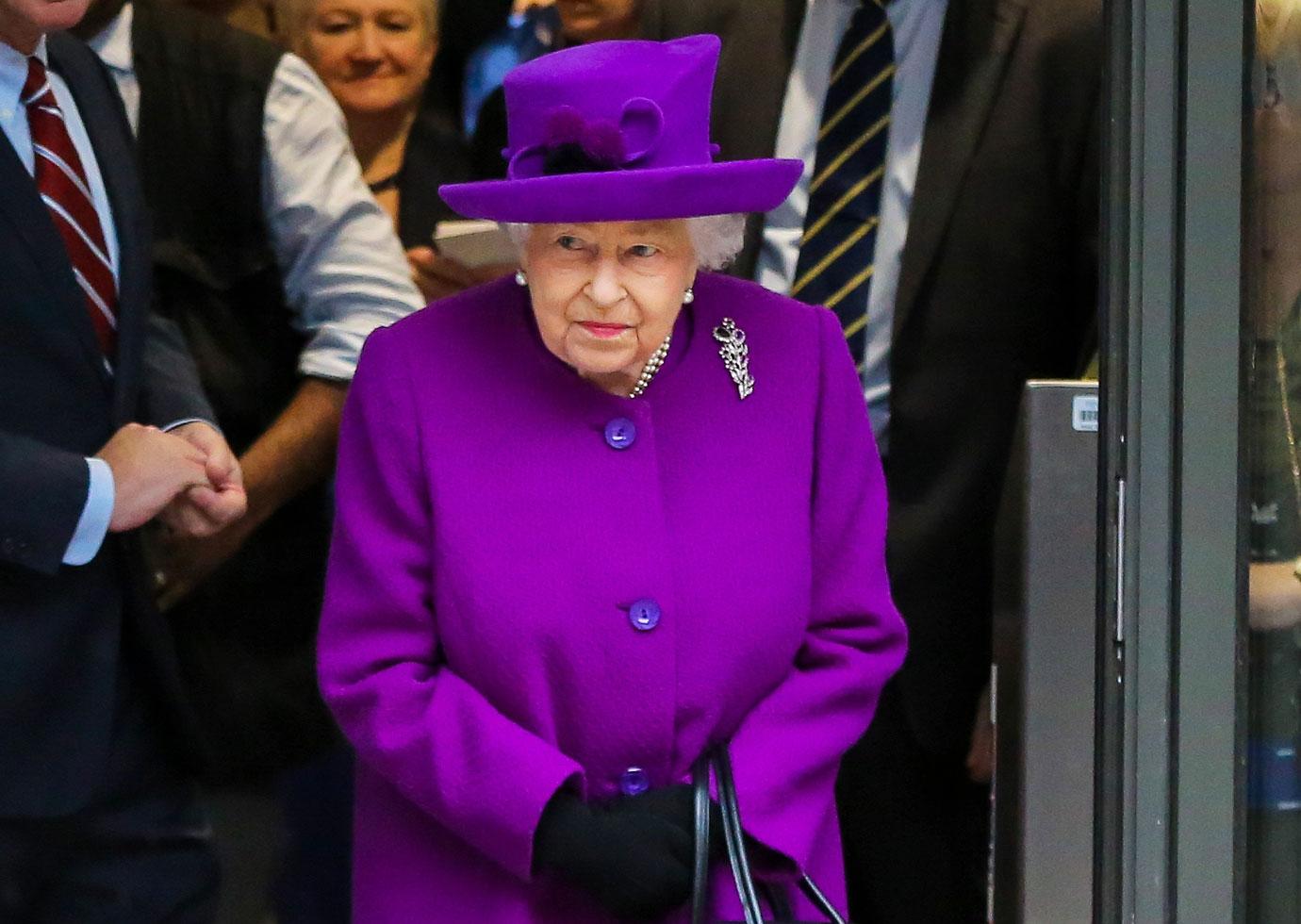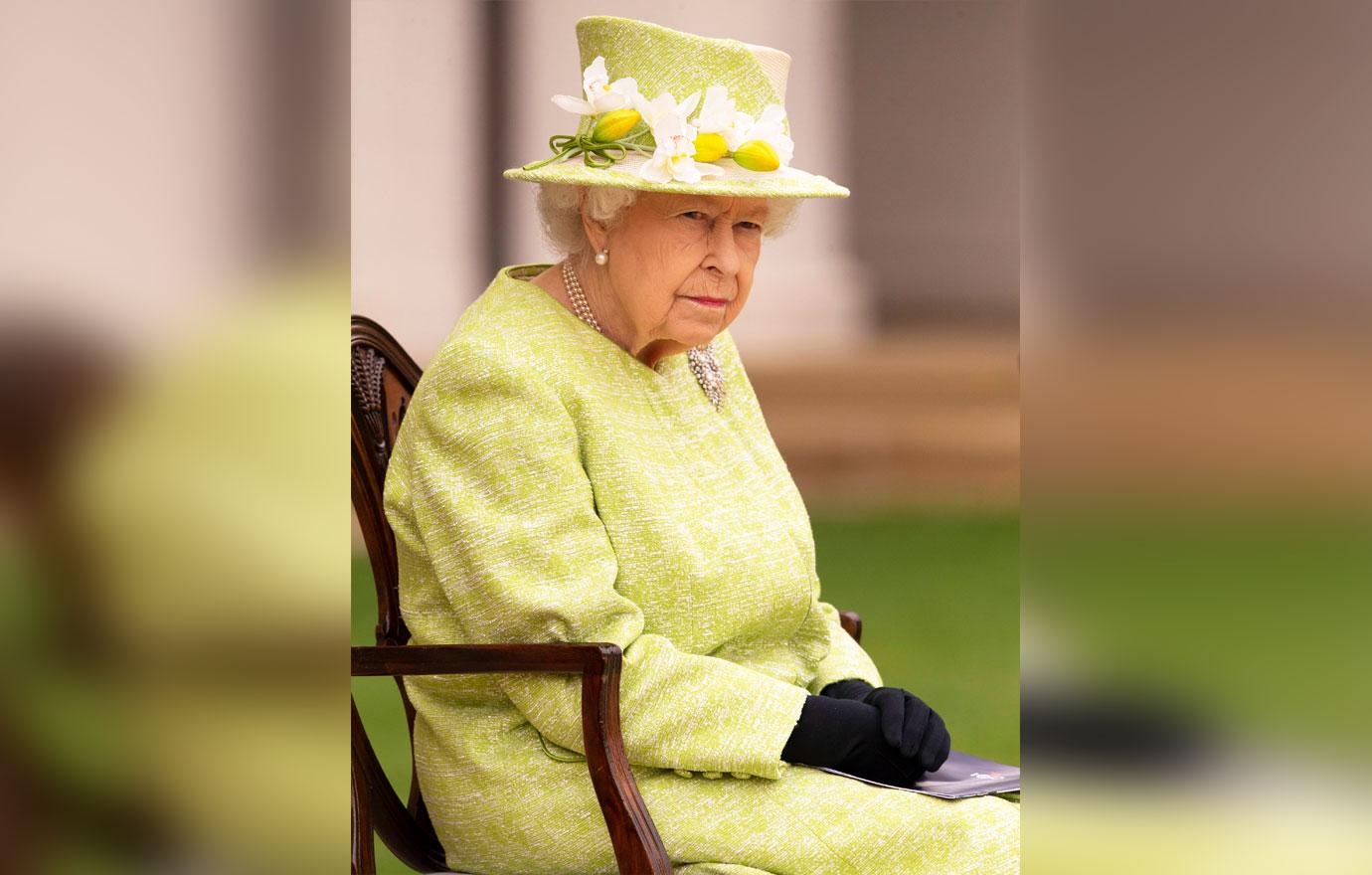Documents Detailing Britain's Plan For When Queen Elizabeth II Dies Revealed: Report
The U.K. government's plan for when Queen Elizabeth II dies has been revealed in a series of documents outlining the days to come after the royal takes her final breath.
While there is no indication that these plans will go into effect anytime soon — as the 95-year-old is in good health — the Cabinet Office reportedly mapped out Operation LONDON BRIDGE so they can be prepared.
The documents, obtained by Politico, show the extraordinary level of detail put into the ten-day window between the queen's death and her funeral. The day of Her Majesty's death will reportedly be referred to as "D-Day." The documents detail how the nation will respond to the news, and the transition of power from the Queen to her son, Prince Charles — who is next in line to the throne.

Each following day leading up to her precession will be referred to as “D+1,” “D+2” and so on, it was reported.
Hours after Prince Harry and Prince William's grandmother dies, a “call cascade” will take place, it was reported. The prime minister, the cabinet secretary, as well as a number of the most senior ministers and officials will be alerted. The queen's private secretary will be in charge of informing the PM and Privy Council Office — which coordinates government work on behalf of the monarch.
When it comes to breaking the news to the public, the royal household will reportedly issue an "official notification." The royal family will announce plans for the queen's funeral, per the outlet.
There will be a call script for departmental permanent secretaries on how to share the news to their ministers. According to the documents, the script will read: “We have just been informed of the death of Her Majesty The Queen.” Ministers will also reportedly be told that “discretion is required.”
In addition, the cabinet secretary will send out an email to the ministers and senior civil servants with a draft of which reads: “Dear colleagues, It is with sadness that I write to inform you of the death of Her Majesty The Queen." Once the email is received, flags across Whitehall will be lowered to half-mast, hopefully within 10 minutes time, it was reported.
The documents further addressed Downing Street's concern over the possible wave of public anger if they cannot lower the flag to half-mast within the 10 minute window. Since Downing Street does not employ a flag officer, there was worry over whether someone would be on duty at the time of the queen's death — as there would be a public uproar if an external contractor was called to lower the flag. According to a government official, per the outlet, the issue is believed to be resolved.
The U.K. parliament and the devolved legislatures in Scotland, Wales and Northern Ireland will reportedly adjourn. Parliament will be recalled, if is not sitting.
Given the strong presence of social media in today's age, many of the cabinet office's plans revolve around online platforms. The royal family’s website will reportedly be changed to a black holding page, which will only include a brief statement confirming the monarch's death.

All government departmental social media pages will show a black banner, according to the report, and change their profile pictures to their departmental crest.
- Buckingham Palace Reportedly 'Furious' That Queen Elizabeth II's Secret Death Plans Were Leaked, Aides Launch Probe Into Finding The Mole
- Inside The ‘London Bridge’ Protocol: Here's What Will Happen On The Day Queen Elizabeth II Dies
- Royal Officials To Enact Operation Unicorn Following Queen Elizabeth II's Death In Scotland
Want OK! each day? Sign up here!
The prime minister will be the first government figure to make a statement, as all other members will be instructed not to comment until the PM has spoken. The prime minister will also hold an audience with the new King. At 6 p.m., Charles will reportedly deliver a broadcast to the nation, and a service of remembrance will be held at St. Paul’s Cathedral.
The service — which will include the PM and a small number of senior ministers — is intended to appear “spontaneous,” per the official documents.
At 10 a.m. on the morning after the queen's death, the Accesssion Council will reportedly meet at St. James’ Palace and declare King Charles the new sovereign. The PM and Cabinet will then hold an audience at 3:30 p.m. with the new King. Ministers will reportedly be told not to bring their spouses to the event.
On "D-Day+2," the queen's coffin will return to Buckingham Palace. If the royal dies at her residence in Norfolk, eastern England, called Sandringham, her body will reportedly be taken by royal train to St. Pancras station in London. Her coffin will reportedly be met by the PM and cabinet members.
If she dies at Balmoral in Scotland, Operation UNICORN will be triggered, per the documents, which means her body will be taken to London by royal train. If operation UNICORN doesn't work out, Operation OVERSTUDY will be activated, meaning the coffin will be transferred by plane. The PM and cabinet members will hold a reception when her coffin arrives.

King Charles will receive a motion of condolence at Westminster Hall three days after his mother's death, and he'll embark on a tour of the U.K. The Prince of Wales will arrive in Northern Island on "D-Day + 4" and receive his second motion of condolence at Hillsborough Castle.
A rehearsal for Operation LION — the procession of Her Majesty's coffin from Buckingham Palace to the Palace of Westminster — will also take place on this day. Operation LION will officially go into play the following day with a ceremonial route through London. A service at Westminster Hall will be held after the coffin arrives.
The queen will lie in the coffin from "D-Day+6 to D-Day+9" at the Palace of Westminster, which is reportedly called operation FEATHER. A rehearsal for the state funeral procession will take place six days after Queen Elizabeth II dies, and King Charles will travel to Wales the following day, it was reported.
In Wales, Charles will receive a motion of condolence at the Welsh parliament.
The widowed royal — who was married to Prince Philip before he died in April — and PM reportedly agreed the state funeral will be a “Day of National Mourning.” While the day won't be labeled as a bank holiday, it will essentially be a national public holiday.
If the state funeral falls on a weekend or another bank holiday, an extra holiday won't be granted. If the funeral falls on a weekday, it will be up to employers as to whether they give their employees the day off.
On "D-Day+10," the queen's state funeral will reportedly be held at Westminster Abbey with a two-minute silence in the middle of the day across the nation. In addition, processions will take place in London and Windsor.
A committal service will be held in St. George’s Chapel at Windsor Castle, and the queen's body will reportedly be buried in the castle’s King George VI Memorial Chapel.

